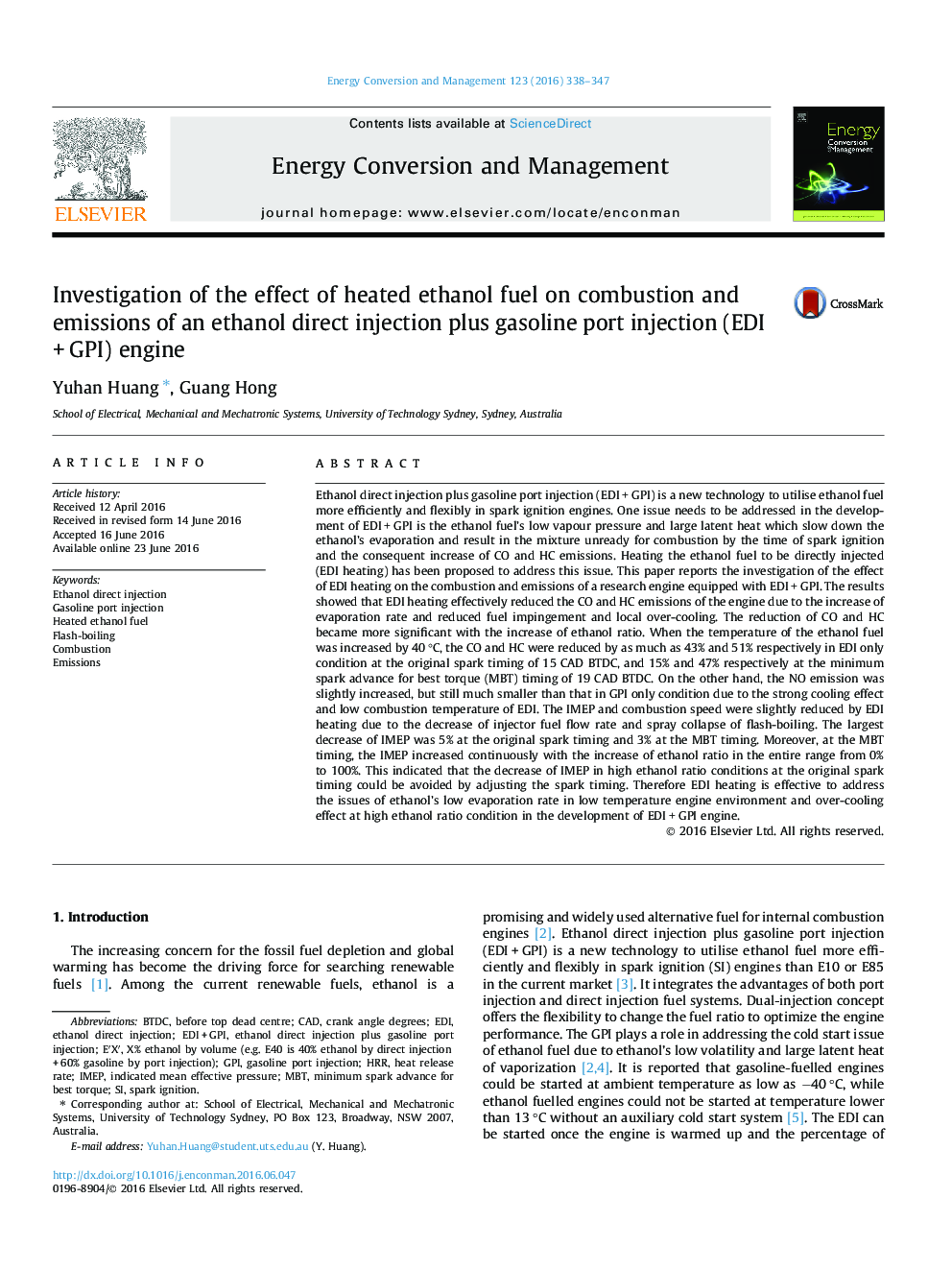| کد مقاله | کد نشریه | سال انتشار | مقاله انگلیسی | نسخه تمام متن |
|---|---|---|---|---|
| 760159 | 1462839 | 2016 | 10 صفحه PDF | دانلود رایگان |

• Effect of EDI heating on the EDI + GPI engine performance was investigated.
• CO and HC were significantly reduced and NO was slightly increased by EDI heating.
• IMEP and combustion speed were slightly reduced by EDI heating.
• EDI heating is effective to address the evaporation and over-cooling issues of EDI + GPI engine.
Ethanol direct injection plus gasoline port injection (EDI + GPI) is a new technology to utilise ethanol fuel more efficiently and flexibly in spark ignition engines. One issue needs to be addressed in the development of EDI + GPI is the ethanol fuel’s low vapour pressure and large latent heat which slow down the ethanol’s evaporation and result in the mixture unready for combustion by the time of spark ignition and the consequent increase of CO and HC emissions. Heating the ethanol fuel to be directly injected (EDI heating) has been proposed to address this issue. This paper reports the investigation of the effect of EDI heating on the combustion and emissions of a research engine equipped with EDI + GPI. The results showed that EDI heating effectively reduced the CO and HC emissions of the engine due to the increase of evaporation rate and reduced fuel impingement and local over-cooling. The reduction of CO and HC became more significant with the increase of ethanol ratio. When the temperature of the ethanol fuel was increased by 40 °C, the CO and HC were reduced by as much as 43% and 51% respectively in EDI only condition at the original spark timing of 15 CAD BTDC, and 15% and 47% respectively at the minimum spark advance for best torque (MBT) timing of 19 CAD BTDC. On the other hand, the NO emission was slightly increased, but still much smaller than that in GPI only condition due to the strong cooling effect and low combustion temperature of EDI. The IMEP and combustion speed were slightly reduced by EDI heating due to the decrease of injector fuel flow rate and spray collapse of flash-boiling. The largest decrease of IMEP was 5% at the original spark timing and 3% at the MBT timing. Moreover, at the MBT timing, the IMEP increased continuously with the increase of ethanol ratio in the entire range from 0% to 100%. This indicated that the decrease of IMEP in high ethanol ratio conditions at the original spark timing could be avoided by adjusting the spark timing. Therefore EDI heating is effective to address the issues of ethanol’s low evaporation rate in low temperature engine environment and over-cooling effect at high ethanol ratio condition in the development of EDI + GPI engine.
Journal: Energy Conversion and Management - Volume 123, 1 September 2016, Pages 338–347